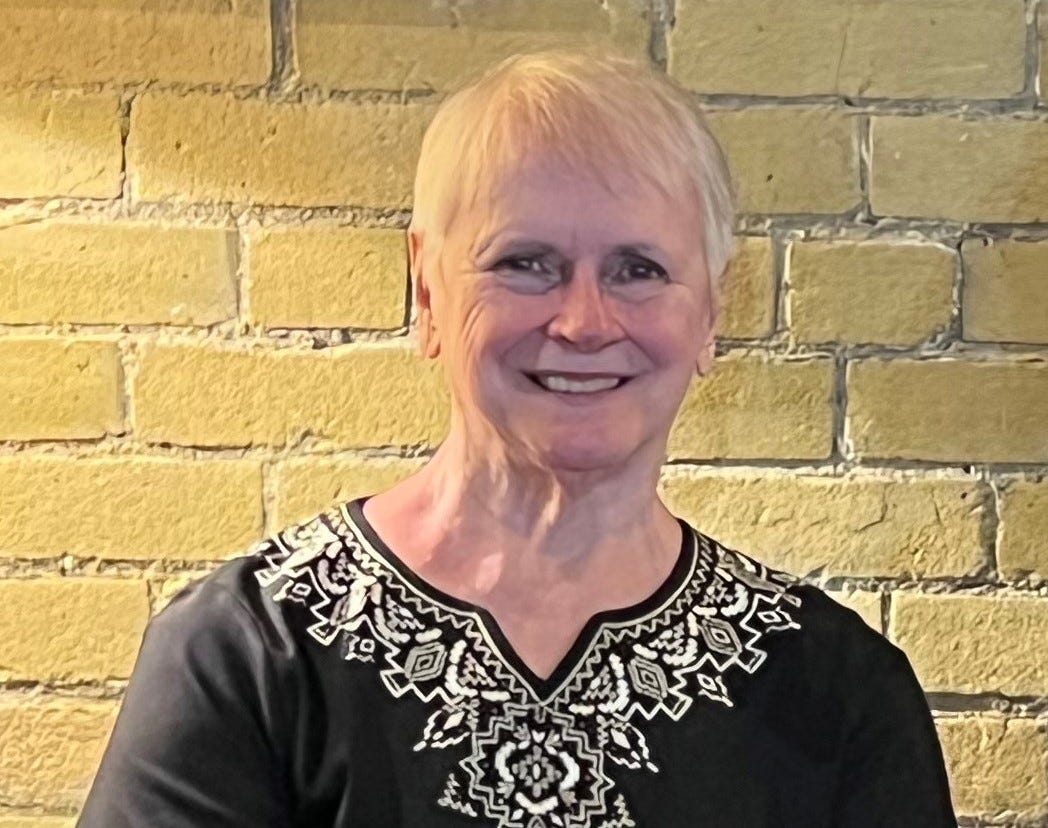Meet our guest listener
Kathy Smith: Kathy Smith is a cancer survivor and a cancer care partner actively engaged as a co-author in many healthcare research projects - including Anna M. Chudyk’s work on better understanding patient partners’ perspectives on engagement. She is a patient research/awards reviewer for many organizations including the Canadian Cancer Society.
Episode Transcript:
Anna:
Hi everyone! Hope you’re having a great start to your week.
One of my many favorite things about this podcast is the conversations that it sparks with not only podcast guests, but with its listeners as well.
So I’ve decided to try out a new segment in this season of asPERusual, called onePERspective.
In this segment, a guest listener will share their individual (or one) PERspective on the previous week’s episode in the form of a short recap of the episode and their key takeaways. All of the views expressed will be their own.
Kathy Smith, a patient partner from Thunder Bay, will be this segment’s initial featured guest listener. Kathy is a cancer survivor and a cancer care partner actively engaged as a co-author in many healthcare research projects – including the study that inspired this podcast. She is one of the busiest people I know and wears many other hats, including as a patient research and awards reviewer for many organizations including the Canadian Cancer Society.
This segment was inspired by the thoughtful reflections she’s shared with me on our podcast episodes since the start of asPERusual. So thank you Kathy. And if you out there have any comments, reflections, or episode ideas you’d like to share with me, please do email me at anna.asperusual@gmail.com. They make my day and a difference in the directions that this podcast takes.
Alright. So here is Kathy Smith, offering her ONEperspective on last week’s episode titled Patient engagement in research funding: Learnings from the Canadian Cancer Society. All views expressed are her own.
Kathy Smith:
The purpose of the Canadian Cancer Society (CCS) is to unite and inspire all Canadians to take control of cancer. CCS is committed to integrate the principles of equity, diversity, inclusion, and accessibility into all aspects of research funding by including the voice of people affected by cancer. Today’s podcast describes how CCS collaborated with People/Patients with Lived Experience (PWLE) to develop their people/patients engaged in research (PER) platform to help achieve these goals.
In this podcast, four members of the CCS Advisory Board – a mix of staff and PWLE, shared many helpful hints they gleaned while constructing their public/patient engagement in research (PER) framework to help CCS plan, implement and evaluate PER at CCS.
Here are some of my key takeaways:
To develop a strong framework, you need clear communication and meaningful collaboration. Take the necessary time to relationship build first. Discuss roles, responsibilities, expectations to come up with a clear, agreed-upon purpose at the outset. Then collaboratively set out your Terms of Reference (ToR) with your patients, research team members and senior leaders. The ToR should be individually tapered by the partners to meet the specific study needs mindful of the common CCS purpose.
The mission and vision and values that you set in your ToR will become the measurable end points to evaluate the success of your PER strategy.
PER involvement continues from the cradle to grave of a research project. The PER framework must be fluid and flexible enough to anticipate that the people and their roles may change to meet the needs of the project and to make best use of their unique lived experiences and varied skill sets.
When the Advisory Group identified a lack of diversity and inclusion within their group, they reached out to partner organizations from underrepresented communities and specific disease sites. They solicited input, held, and attended workshops, and included new members into their group so that their PER framework is equitable, inclusive, and authentically represents diversity of lived experiences.
Another gap in their framework identified by the members and now being addressed is the need for equitable access to PERs for all research scientists. Pure scientific researchers would benefit from training in the PER platform. A national repository to match the experience and expertise of PERs in the database with researcher requests for PERs can strengthen meaningful and respectful PER engagement. Research to improve the lives of patients must be informed by their needs and priorities said researcher Dr. John Marshall of Unity Health. Public/Patients with Lived Experience engaged in research ground the research in needs and priorities identified as important and relevant to patients.
The speakers today were so enthusiastic! Their comments showed how strongly committed and united they were in focus while they evolved this framework for engaging patients in research. Authentic and meaningful patient engagement will better the outcome of research for all patients. This new PER framework will be a strong tool to “unite and inspire all Canadians to take control of cancer.
Anna:
Thanks again Kathy for offering your ONEperspective on last week’s episode. It has hopefully inspired those who’ve listened to further reflect on their key takeaways from last week, as well as inspired those who have not listened yet to check out the episode on our website asperusual.substack.com or wherever it is that they download their other podcasts from. We’ll be back next week with an episode focused on equity, diversity, and inclusion in patient engagement in research with guests Ambreen Sayani and Omar Khan talking about their innovative work with the Equity-Mobilizing Partnerships in Community (EMPaCT) patient engagement model. Until then, have a great week and keep working at making patient engagement the standard, or as per usual.
1×
0:00
Current time: 0:00 / Total time: -7:14
-7:14
S2E1.5 - OnePERspective
A patient partner's reflections on last week's episode
Jan 23, 2024
Listen on
Substack App
RSS Feed
Recent Episodes













Share this post